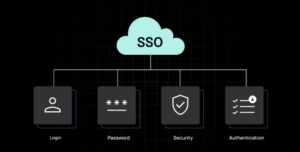
Education is the key to success—this age-old phrase encapsulates one of the most powerful truths of human existence. In today’s rapidly evolving world, where innovation and knowledge are the driving forces behind progress, education has become more than just a requirement; it’s a gateway to opportunities, personal development, and societal change. Whether you’re aiming for a successful career, personal growth, or contributing to a better world, education is the foundation upon which all success is built.
From acquiring essential skills to opening doors to advanced career prospects, education helps individuals unlock their true potential. In this article, we will delve into how education shapes success, explores its different forms, and offers insight into why it’s essential for both personal and professional growth.
The Transformative Power of Education
Education is often regarded as a tool of empowerment. It equips individuals with the necessary knowledge and skills to navigate the complexities of life. From childhood through adulthood, learning plays a crucial role in shaping how we approach challenges, interact with others, and contribute to society. The more knowledge we acquire, the more effectively we can solve problems, make informed decisions, and create positive change in the world.
Furthermore, education opens doors to a wide range of career opportunities. It can pave the way for high-paying jobs, leadership positions, and the ability to impact communities. The higher the level of education, the more likely individuals are to secure financial stability and long-term career success. It’s not just about memorizing facts; it’s about developing critical thinking skills, creativity, and emotional intelligence, which are all integral aspects of success in the modern world.
2. Education as a Catalyst for Personal Growth
One of the greatest advantages education is the key to success is its ability to foster personal growth. A well-rounded education nurtures not just intellect but character. It encourages individuals to explore new ideas, question their assumptions, and cultivate a lifelong love for learning. In this sense, education is not merely a process of information acquisition, but a journey of self-discovery and personal development.
Education is the key to success as individuals engage with different subjects, they develop the confidence to face challenges and take calculated risks. Education teaches resilience and adaptability—two vital traits for success in both personal and professional life. With each new skill or piece of knowledge learned, individuals build self-esteem and a deeper understanding of their capabilities. This newfound confidence can propel them towards their goals, helping them become better versions of themselves.
3. How Education Unlocks Career Success
In the modern job market, education is one of the most significant determinants of career success. Employers look for individuals with strong educational backgrounds, as this often correlates with higher levels of competence, reliability, and potential for growth. A higher level of education, such as a university degree or specialized certification, can significantly increase one’s earning potential.
Moreover, education helps individuals stay relevant in an ever-changing job market. Technological advancements and industry shifts make it necessary for workers to continuously update their skills. Continuing education, whether through formal classes, workshops, or self-paced online learning, allows professionals to stay competitive and prepared for new opportunities. Thus, education is an investment not only in knowledge but also in the future security and success of one’s career.
4. The Role of Education in Building Strong Societies
Education is the key to success Education is a powerful tool for societal progress. Educated individuals are more likely to contribute positively to their communities, engage in democratic processes, and lead efforts toward societal development. Education promotes equality by offering people from all walks of life the opportunity to improve their circumstances and contribute to the broader good.
Furthermore, as individuals become educated, they are better equipped to tackle pressing global challenges such as poverty, inequality, and environmental sustainability. For instance, an educated population is more likely to make informed choices about health, voting, and social justice. In this way, education fosters not only personal success but collective prosperity, helping to build stronger, more cohesive societies.
The Lifelong Benefits of Education
The key to sustained success lies in continuous learning. Education doesn’t stop after formal schooling ends; it’s a lifelong process that adapts to changing personal and professional needs. By continually seeking knowledge, individuals can adapt to new challenges, make better life choices, and maintain a competitive edge in the workforce.
Education is the key to success Moreover, lifelong learning offers individuals the chance to pursue their passions, enhance their skills, and enrich their personal lives. Whether through formal education, reading, or engaging in online courses, continuous education helps individuals stay mentally sharp and emotionally fulfilled. The process of learning never truly ends, and each new piece of information has the potential to unlock new opportunities for success.
Conclusion: The Indispensable Link Between Education and Success
Education is the key to success and its importance cannot be overstated. Whether for personal growth, career advancement, or societal development, education provides the tools needed to unlock one’s full potential. It’s a lifelong process that not only imparts knowledge but also nurtures character, critical thinking, and adaptability. As we look toward the future, education remains the cornerstone upon which individuals and societies build their success.
Remember, no matter where you start in life, education gives you the chance to change your path, overcome obstacles, and achieve greatness. Investing in your education is investing in your future success.
FAQs
- Why is education considered the key to success? Education equips individuals with the knowledge and skills needed to thrive in both personal and professional life, opening doors to various opportunities.
- How does education help in career advancement? A solid education provides individuals with the qualifications and skills that employers value, often leading to higher-paying jobs and career growth.
- Can education make a difference in personal development? Yes, education promotes personal growth by encouraging critical thinking, problem-solving, and emotional intelligence, all of which contribute to personal success.
- Is formal education the only way to achieve success? While formal education is important, lifelong learning through self-study, online courses, and other informal methods also plays a crucial role in success.
- How does education impact society as a whole? Educated individuals contribute positively to society by fostering social change, promoting equality, and solving community challenges.
- What role does education play in economic development? Education is a key driver of economic growth, as it equips the workforce with the skills needed to adapt to changes in the global economy.
- Can education help overcome poverty? Education is a powerful tool in breaking the cycle of poverty by providing individuals with the skills needed to secure better job opportunities and improve their quality of life.
- How can education improve mental well-being? Education fosters self-confidence, builds problem-solving skills, and encourages emotional intelligence, which can positively affect mental health.
- What are the long-term benefits of education? Beyond career advancement, education leads to increased life satisfaction, better health choices, and stronger community involvement.
- How can someone start investing in their education today? Individuals can invest in their education by pursuing formal degrees, taking online courses, reading books, or learning through other personal development resources.
4o mini







